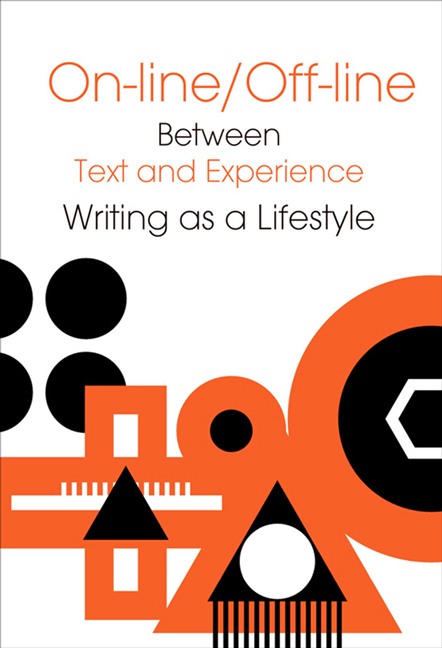Book contents
- Frontmatter
- Contents
- Editors’ Introduction
- ON-LINE/ OFF-LINE
- LITERATURE AND CONVERGENCE
- Poetics in the Age of Convergence
- Convergence and Communication: Genre Analysis of the websites of Polish Writers
- Towards a Generic Analysis of the Microblog (Based on a Study of Twitter)
- How Does the Hybrid Work of Art Exist?
- Liberature in Relation to the Reconfiguration of Aisthesis
- Literature in/of the City – Introductory Comments
- Literary Studies, History and Popular Culture – the Spaces of Convergence
- Afterpop: the Almost Perfect Convergence
- Transcultural Convergence? Polish Poets and Artists and the Oriental Verbo-visuality
- From an E-narrative Poem towards an Interactive Work of Art. Media Convergence Illustrated with DOWN by Zenon Fajfer and The Surprising Spiral by Ken Feingold
Literature in/of the City – Introductory Comments
from LITERATURE AND CONVERGENCE
Published online by Cambridge University Press: 12 January 2018
- Frontmatter
- Contents
- Editors’ Introduction
- ON-LINE/ OFF-LINE
- LITERATURE AND CONVERGENCE
- Poetics in the Age of Convergence
- Convergence and Communication: Genre Analysis of the websites of Polish Writers
- Towards a Generic Analysis of the Microblog (Based on a Study of Twitter)
- How Does the Hybrid Work of Art Exist?
- Liberature in Relation to the Reconfiguration of Aisthesis
- Literature in/of the City – Introductory Comments
- Literary Studies, History and Popular Culture – the Spaces of Convergence
- Afterpop: the Almost Perfect Convergence
- Transcultural Convergence? Polish Poets and Artists and the Oriental Verbo-visuality
- From an E-narrative Poem towards an Interactive Work of Art. Media Convergence Illustrated with DOWN by Zenon Fajfer and The Surprising Spiral by Ken Feingold
Summary
Abstract
The article attempts to describe a variety of possible ways in which literature makes itself present within the space of the city. It assumes two basic perspectives to investigate the issue. First of all, the article analyses how the city and its multiple institutions support the literature's circulation and availability for the readers. The city offers a number of venues for writers to present their works and promote them through precisely targeted events and literary festivals. The city is seen as a stage or background on which literary works and events can become fully available. Secondly, the article analyses how literary critics or more broadly philosophers and sociologists interested in urban studies use literature to understand and describe the city in its artistic and everyday dimensions. The fruitful col-laboration between city as an active factor shaping artistic imagination and writers leads to developing new forms of expression as well as formulating new ideas about art. It also offers a possibility to communicate with readers in ways which are better accommodated to modern visual imagination and different forms of everyday activity.
Key words: literature, space of the city, literature's circulation, urban studies, new forms of expression
The city – an area of literary explorations
Long present in literary studies, urban research is now approached from novel angles (e.g. Rybicka 2003; Rewers 2005 and 2010; Miasto w sztuce… 2010). Despite the fact that considerable attention is still devoted to tradi-tional analyses of the motif of the city in literature (confer, for instance: Miasto, kultura literatura… 1993; Obraz stolic europejskich… 2010; Literack-ie i nieliterackie obrazy miasta… 2011), many scholars examine the identi-ty-shaping, social, historical, political and cultural aspects of urban spaces depicted in literary works (e.g.Suchojad 2010, Adamczewska 2011) and investigate the ways in which urban aesthetics contributes to the devel-opment of new artistic solutions. Although the city is not always placed at the centre of consideration, it often accidentally becomes the subject of attention, as in the case of a review of Steve Sem-Sandberg's novel The Emperor of Lies (2011): “The novel has many narrators, who gradually fall silent […] What remains in the end is the city – an empty arti-fact observed through the eyes of one of the few dwellers who hide in it” (Krzymianowski 2011; emphasis added).
- Type
- Chapter
- Information
- On-line/Off-lineBetween Text and Experience: Writing as a Lifestyle, pp. 271 - 292Publisher: Jagiellonian University PressPrint publication year: 2016



